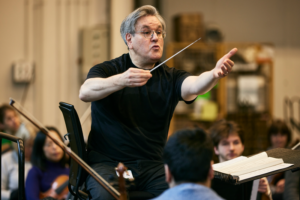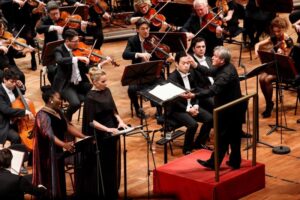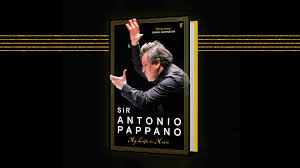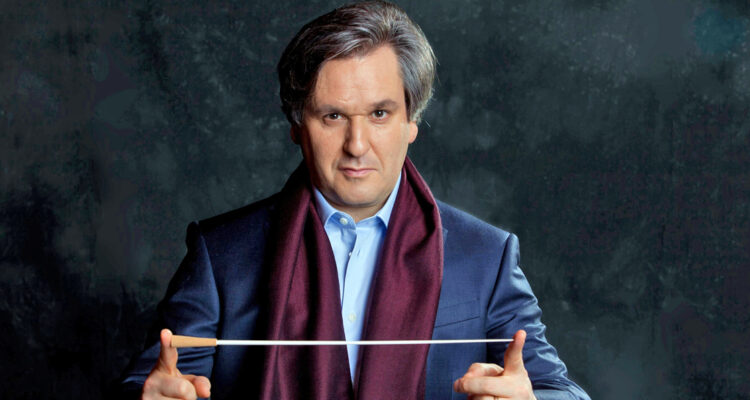Antonio Pappano’s autobiography, “My Life In Music,” offers an engaging and insightful journey through the life of one of the most celebrated conductors. This book is not just for classical music aficionados but for anyone interested in the transformative power of passion and perseverance.
Structured chronologically, the narrative begins with Pappano’s early life in London, painting a vivid picture of a modest upbringing with loving parents who struggled to make ends meet. His father, an aspiring tenor, never found success as a singer but instilled in young Antonio a solid foundation in music that would greatly influence his future.
Pappano’s early responsibilities included being a piano accompanist for his father’s private vocal students, a task that cultivated his musical skills and work ethic from a young age. When he had to leave his father without a pianist, his early career moves were tinged with guilt.
Pappano frequently reflects on his father’s contributions to his appreciation of music, with a tribute to his father being integral to his successful career. He recalls his first production as a music director in Oslo, where his debut opera was Verdi’s Un ballo in Maschera: “All my knowledge of this opera’s inner workings gained from playing the piece for my father...” The sense of guilt Pappano carries for not spending more time with his family is also interwoven into the fabric of his challenging, inspiring, and highly successful career.
The book is peppered with charming personal anecdotes. Pappano’s paternal grandmother, Antonietta, whose formidable presence influenced his parents’ decision to flee their village, Castelfranco in Miscano, to London, comes to life in just a few brief comments. Pappano humorously notes, “To this day, the mention of her scares the living daylight out of me, yet I admired her.” This blend of humour and reverence adds a personal touch that makes the narrative relatable and engaging throughout.
The family moved to Connecticut, USA, in 1973. Antonio was 13 and his younger brother, Patrick, 11. It was after the tragic death of their eight-month-old sister, Incoronata. They moved in with his mother’s sister, marking a new beginning for Pappano. His involvement with a small Connecticut opera company sparked his realization that a career as a repetiteur was within reach. In New York, he worked with legendary Broadway producer Hal Prince before moving to Europe, making his opera directing debut in Oslo in 1987. Danish soprano Inga Nielsen’s words resonated with him: “You play the piano like an orchestra; you have to conduct.” This advice steered Pappano toward his future path, including pivotal stints in Barcelona, Frankfurt, and assisting Daniel Barenboim in Israel and at Bayreuth.
Pappano’s career trajectory takes readers from his experiences as a repetiteur and musical assistant to his challenging opera directing debut in Oslo in 1987, where Puccini’s La Bohème, known for its technical difficulties, served as a baptism by fire. His ability to break down the intricacies of famous operas offers readers a fascinating glimpse into the conductor’s art of translating scores into compelling performances.

The book reaches a crescendo with Pappano’s appointment as Music Director of the Royal Opera House in 1999, a significant breakthrough in his career. He officially began this role in 2002. Through behind-the-scenes stories, readers glimpse the high-pressure world of opera and symphonic music, where Pappano worked with renowned singers, orchestras, and directors. These anecdotes provide a rare look into the collaborative and often stressful environment of professional music-making.
Pappano’s passion for music and dedication to his craft are evident throughout the book. He emphasizes the importance of hard work, perseverance, and resilience. His discussions on interpreting and conducting music shed light on his creative process and the nuances of bringing a musical score to life. The book highlights the collaborative nature of music-making, showcasing the mutual respect and relationships that drive successful performances.
Written in a conversational tone, “My Life In Music” is accessible to both music enthusiasts and general readers. Pappano’s voice is warm and engaging. He provides fresh analyses of works like Le Nozze di Figaro, making them comprehensible even to newcomers. His enthusiasm for Verdi is evident throughout the book, with a detailed 32-page analysis of the first half of the Requiem. This chapter, though technical in parts, offers non-musically trained readers an exciting path to understanding beyond emotional appreciation. Pappano continues his father’s legacy by engaging with young aspiring singers, now having more time to invest in the young.

“My Life In Music” offers valuable insights into classical music and opera, making it an educational experience for readers. Pappano’s journey is inspiring, demonstrating how passion and dedication lead to extraordinary achievements. While some technical discussions may challenge readers without a music background, the book’s primary appeal lies in its ability to inspire and educate through the story of one of the most influential conductors of our time.
This book is a must-read for music lovers and anyone interested in the life of an extraordinary musician.

Sir Antonio Pappano: My Life In Music
Publication Date: 2024
By Faber & Faber Ltd

